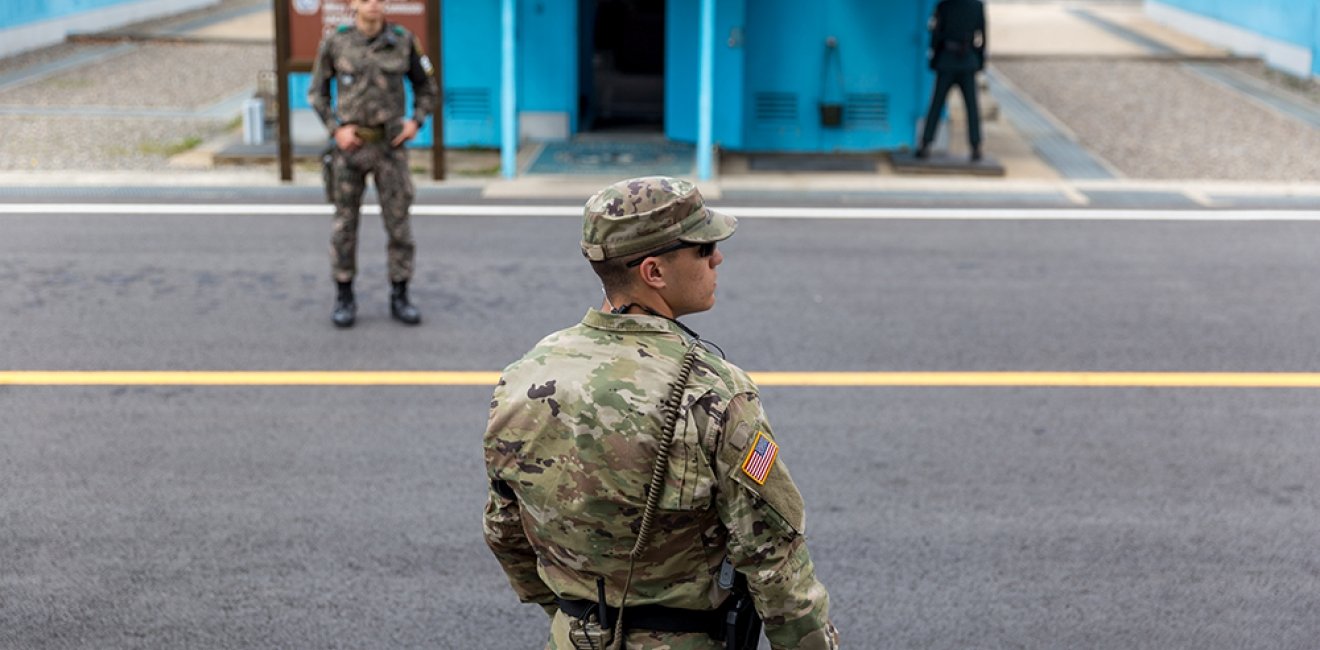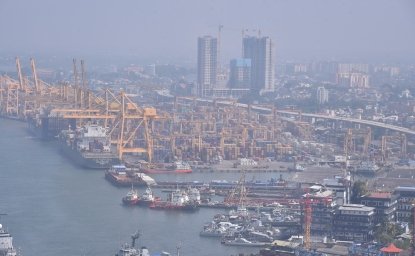
A blog of the Indo-Pacific Program
It should be said at the outset that I am very supportive of diplomacy with North Korea. I have written about the dangers of preventive strikes on North Korea and the risk of military escalation, and testified to my support for diplomacy with North Korea before Congress. Yet to support diplomacy is not to support it blind to the risks and costs involved. Looking for a good deal does not mean one should accept any deal, no matter how disadvantageous it may be. We should recall that diplomacy is a tactic – not a strategy, and certainly not an objective. Ultimately, the success or failure of diplomacy will be judged based on achieving one’s objectives, and the cost of that achievement.
As President Trump meets with North Korean Leader Kim Jong Un in Hanoi, the outlines of a deal have begun to take shape. While a great deal of attention will naturally be paid to what progress North Korea will make toward denuclearization (and what concessions the U.S. will make in exchange), we should not overlook the possibility that the two countries will declare an end to the Korean War. Though such a declaration may seem like a positive way to signal American goodwill without risk or cost, a closer examination suggests that such a declaration is unlikely to succeed and could have real political consequences for the United States.
First, it should be recognized that declaring the end of the Korean War is not a reflection of any change to the military situation on the Korean peninsula. Though not officially, the Korean War functionally ended with the cessation of hostilities and the declaration of an armistice in 1953. Yet no one who has visited the DMZ or studied North Korea’s long record of post-1953 aggression against its neighbors would declare the Korean peninsula to be peaceful. North Korea remains as dangerous a threat today as it was on the first day of the Trump administration. North Korea has developed a significant military capability, to include weapons of mass destruction that have the potential to devastate U.S. allies and, with the development of an inter-continental range ballistic missile – the American homeland itself. According to the Department of Defense, “the North Korean military poses a serious and growing threat to Northeast Asia, U.S. forces in the region, and the world.”
Declaring an end to the Korean War would not change these realities. The uneasy and fragile peace that has existed along the DMZ since 1953 will remain, and North Korea will continue to have the ability to devastate its neighbors and the United States. This is why the United States has maintained a robust alliance with South Korea, including tens of thousands of troops prepared to defend its allies from potential North Korean aggression.
Yet no one who has visited the DMZ or studied North Korea’s long record of post-1953 aggression against its neighbors would declare the Korean peninsula to be peaceful.
Those who support declaring an end to the War argue that doing so is necessary to make progress toward denuclearization, as such a declaration would convince Pyongyang of Washington’s peaceful intent. Yet the United States has already offered security assurances to North Korea three times – in 1994, 2000, and 2005. None succeeded in convincing Pyongyang to abandon its nuclear weapons program, and the subsequent deposing of Saddam Hussein and Muammar Gaddafi convinced the North Koreans that making denuclearization deals with the United States opens the door for regime change.
Moreover, we should not be sanguine that declaring an end to the Korean War without any change to the military threat posed by North Korea is cost-free. In fact, there is a danger that such a declaration could damage political support for the U.S.-ROK Alliance and for the U.S. military presence in the Korean peninsula. It could be argued that declaring an end to the War would weaken justification for the United States to remain such a robust military presence; after all, why do we need more than 28,500 troops in Korea if the war is over and, as the President has said, “There is no longer a Nuclear Threat from North Korea”? The fact that President Trump has publicly declared his preference for the U.S. military to leave the Korean peninsula emphasizes the political connection between declaring an end to the War and the continued U.S. military presence in the region.
The reality, however, is that the U.S.-ROK Alliance is not based on a state of war with North Korea, or even the threat from North Korea. In fact, the U.S.-ROK Mutual Defense Treaty makes no mention of North Korea at all; rather, it commits both sides to “consult together whenever … the political independence or security of either of the Parties is threatened by external armed attack” and they “would act to meet the common danger in accordance with its constitutional processes.” Any declaration to end the Korean War, no matter how genuine, would have no legal impact on the U.S.-ROK Alliance. Only if Pyongyang and Washington consider a formal end to the armistice and/or the normalization of diplomatic relations would the U.S.-ROK Alliance and U.S. military posture in Korea be legally implicated. The U.S. military presence in Korea, Japan, and across the Indo-Pacific is a stabilizing force. So long as the DPRK represents a threat to the security of the United States, the ROK, Japan, and the broader stability of East Asia, the U.S. should remain committed to sustaining a robust military presence that can deter and defeat that threat.
Further, the United States should be under no illusions about the nature of Kim Jong Un and his regime. Kim has killed thousands of his own countrymen, including his own half-brother and uncle, to strengthen his grip on power. He maintains a horrifically repressive system on his own people, which include the maintenance of a system of gulags that hold 80,000–130,000 political prisoners. Under Kim’s watch, North Korea also dramatically accelerated North Korea’s testing of nuclear weapons and ballistic missiles before he declared a testing moratorium. He is not a man overly concerned with international laws and norms. He is not a man of peace. He is not someone who can be trusted. If President Reagan’s mantra in negotiations with the Soviet Union was “trust but verify,” President Trump’s mantra with Kim should be “distrust and verify.”
Any declaration to end the Korean War, no matter how genuine, would have no legal impact on the U.S.-ROK Alliance.
To make a true and lasting peace on the Korean peninsula, diplomacy with Pyongyang will need to go far beyond ambitious, vague statements of goodwill with few practical changes to the peninsula’s security situation. Beyond North Korea’s complete and verified (or, if you prefer, full and final) denuclearization, an agreement similar to the Treaty on Conventional Armed Forces in Europe (CFE) along with significant and sustained military confidence building measures would need to be finalized in order to credibly reduce the threat posed by North Korea.
It has been said that “peace without truth is a false peace.” Diplomacy with Pyongyang is a positive development, and it is commendable for both sides to attempt to break from the past patterns of failure and embrace a peaceful future. But those hopes and ambitions should not force us to ignore the truths of what North Korea is, who Kim Jong Un is, and the unfortunate military realities of the North Korean threat. While declaring an end to the Korean War may be a heartwarming and hopeful moment, such a declaration will not automatically change the realities of the Korean peninsula. At best, such a declaration would kick-start a long, difficult, and fragile diplomatic process.
Follow Abraham Denmark, director of the Asia Program, on Twitter @AbeDenmark.
The views expressed are the author's alone, and do not represent the views of the U.S. Government or the Wilson Center. Copyright 2018, Asia Program. All rights reserved.
Author


Indo-Pacific Program
The Indo-Pacific Program promotes policy debate and intellectual discussions on US interests in the Asia-Pacific as well as political, economic, security, and social issues relating to the world’s most populous and economically dynamic region. Read more


Hyundai Motor-Korea Foundation Center for Korean History and Public Policy
The Center for Korean History and Public Policy was established in 2015 with the generous support of the Hyundai Motor Company and the Korea Foundation to provide a coherent, long-term platform for improving historical understanding of Korea and informing the public policy debate on the Korean peninsula in the United States and beyond. Read more





